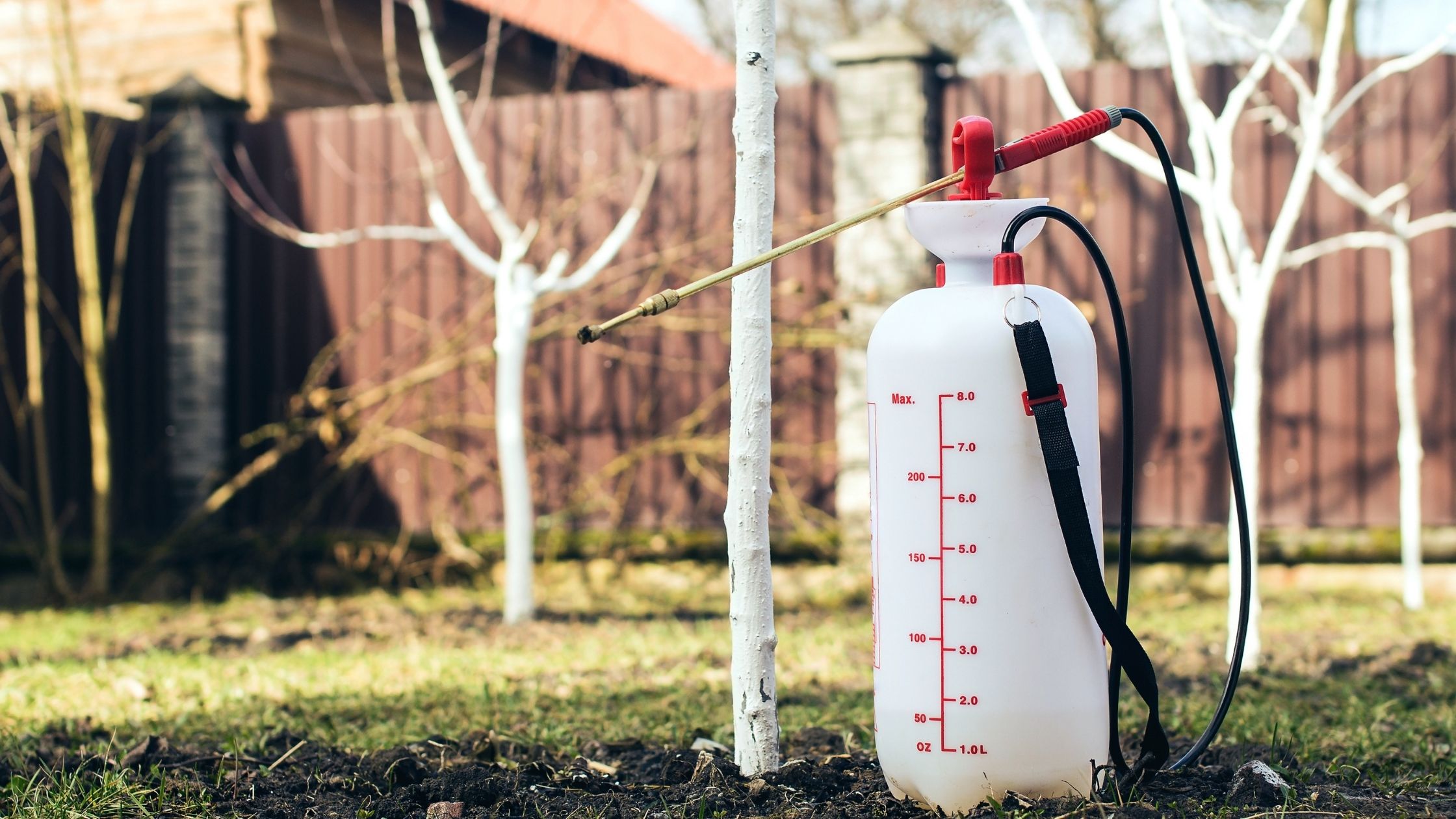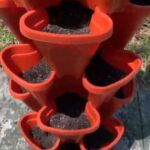Looking for several Types of Garden Sprayers? When you were younger, you might have thought that water was all you need to care for your garden. However, you might have realized at some point in your life that gardening requires much more effort. Not only does it require time, but it also requires tools. One of these necessary tools is a sprayer. If you have found a way around your garden, you will know how vital a sprayer is.
However, you would also know how difficult it could get to buy one. With all the numerous models and styles of garden sprayers available in the market, getting a garden sprayer that works best for you could be overwhelming. This is precisely why we are here.
We have compiled a list of the best garden sprayers available and their pros and cons so you could decide which one will be the best pick for you.
Before discussing the different types of garden sprayers available on the market, let us have a word about why everyone with a garden needs a garden sprayer.
Types of Garden Sprayers
Garden Hose Nozzles
Garden hose nozzles are always in demand, which is why you will find hundreds of varieties of these. Instead of feeling overwhelmed, you should think about what type of material, style, size, and flow rate you should choose from. Read about Garden Hose Storage Ideas.
Material
You will find spray nozzles made of metal, plastic, or both metal and plastic. We recommend that you should buy a metal nozzle with a rubber wrapped grip. A metal nozzle with an anodized finish is the best as it does not rust and is durable. The rubber grip allows better grip and keeps your hand warm if the water in the pipe is too cold.
Styles
There are so many styles of garden hose sprayers to pick from.
Traditional Nozzles
These are the brass, cylindrical nozzles that are used traditionally. If you twist the end in one direction, it goes from spraying a fine mist to a coarse stream, and if you turn it in the other direction, it will stop the flow completely.
They are not efficient as they pour water in only one place, but they are long-lasting and durable.
Pistol Grip
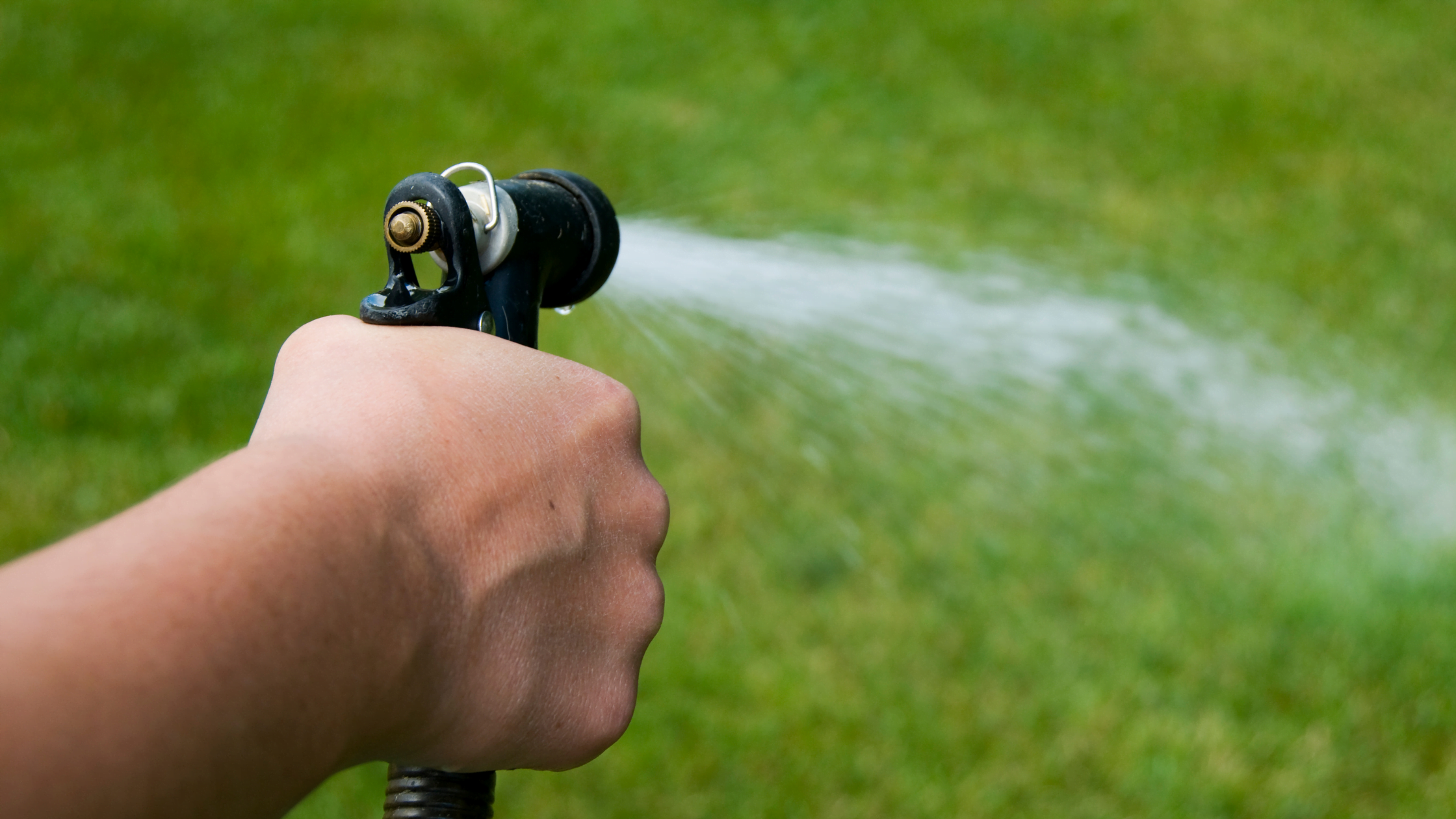
The nozzle is shaped like a pistol. It allows a firm grip and has a feature to turn on or off the water whenever you want. You can also control the flow rate, which depends on how far you press the trigger.
If you want a pistol grip hose nozzle, get the aluminum one as it is more long-wearing than those made of plastic.
Dial or Turret
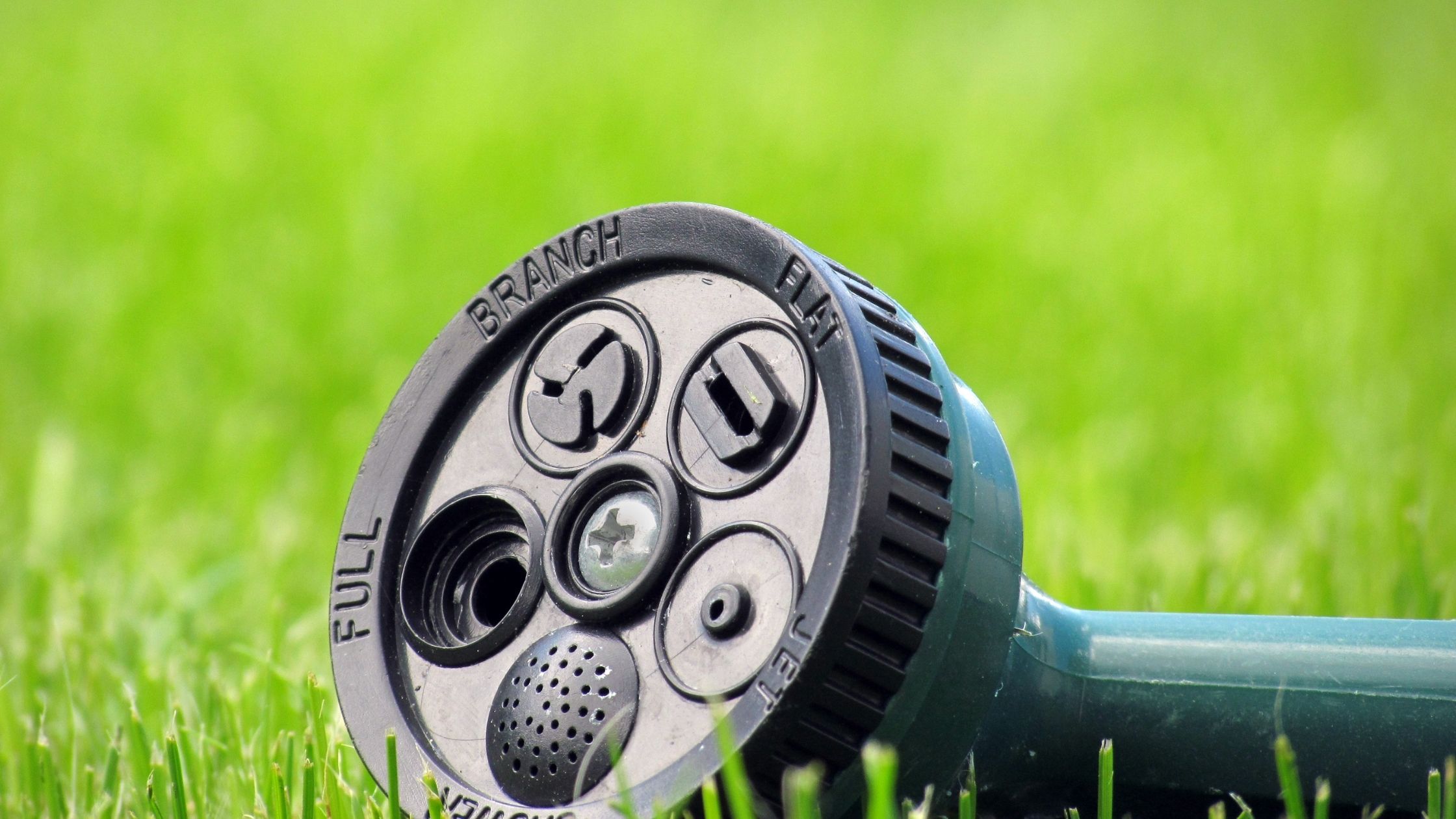
This one is a more advanced version of the pistol grip style. It is shaped like a pistol but has the added feature of a variety of spray patterns. You can turn the nozzle and set the spray pattern to fan or flat, shower, mist, soak, etc. These should be your pick if you have various plants in your garden and need different spray patterns for them.
Watering Wand
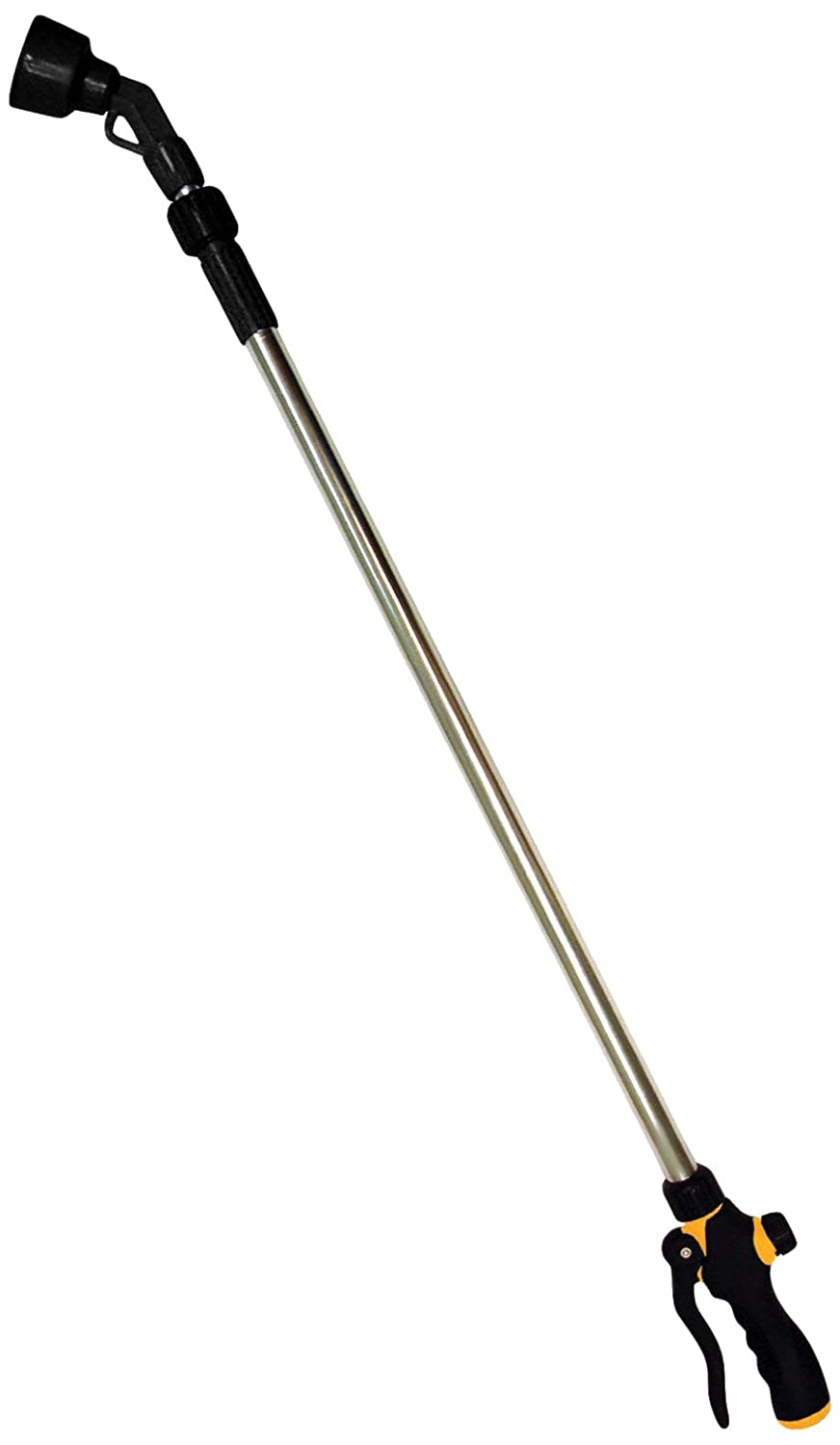
If you want to spray water at a height, water wand nozzles should be your pick. This type of nozzle extends your reach, and you can water plants high up. Some of the models come with dial nozzles so you can spray in a variety of patterns and have the feature to switch on or off the water supply without turning the faucet on or off.
Fan Nozzles
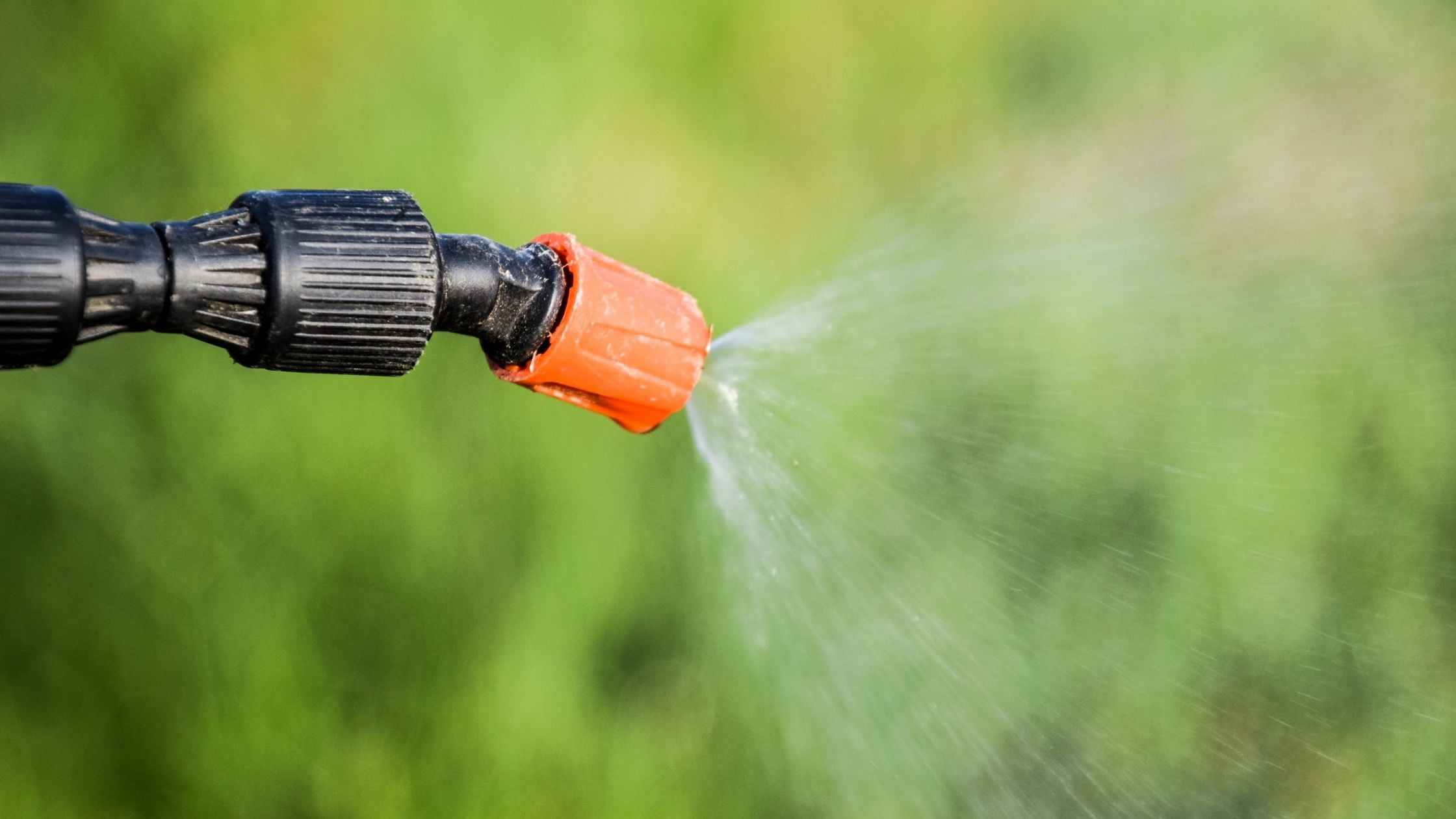
Fan nozzles are perfect for watering small gardens. They do not provide control over water flow rate and only spray water in a fan-shaped pattern, but they are efficient and get the job done in a shorter time. In addition, the flow is gentle, so they don’t damage any of the plants.
While garden hose sprayers are typically used to spray water, you can use them to spray chemicals. You can use a hose-end sprayer to do that.
Hose-end Sprayers
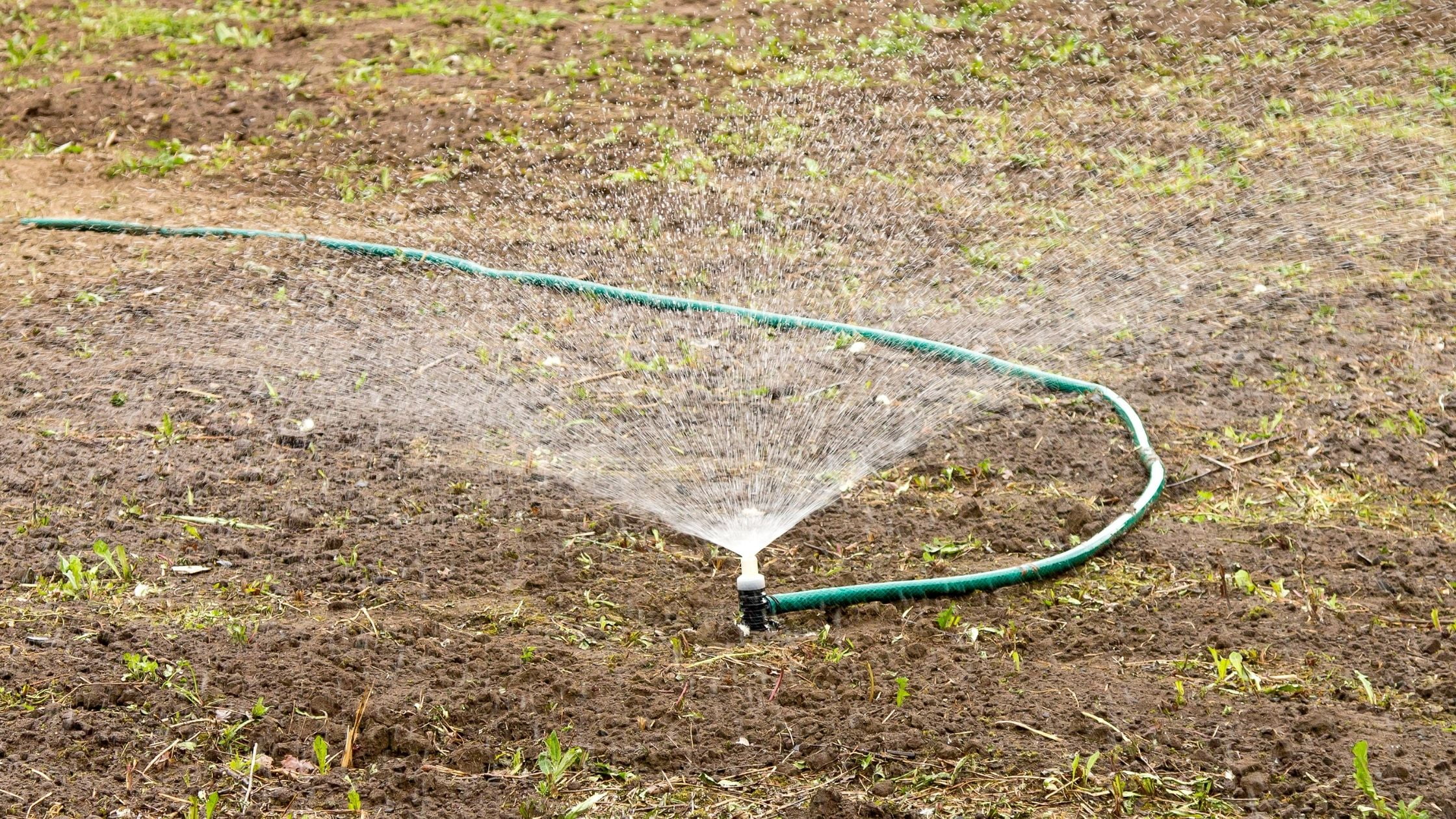
Hose-end sprayers are the traditional sprayers used to distribute chemicals. They are the most affordable and commonly available.
You attach a hose-end sprayer to the end of your hose. They already have concentrated material that you want to distribute. You simply adjust what amount of that chemical you want to deliver. Then, you open the faucet and allow the water. When the water reaches this hose and jar, its pressure pulls the chemical out from the bottle, mixing with the water, and sprays out.
While these are the most affordable chemical sprayers available, they are not the most practical for spraying pesticides and insecticides. They are particularly impractical because they require manual effort, and that would tire you out, especially if you have a bigger garden to cover. Also, you need high pressure to distribute chemicals evenly, and therefore, you need the garden pump sprayers.
Garden Pump Sprayers
They are great tools to apply chemicals around your gardens. Be it pesticides, insecticides, herbicides, or fertilizers, a pressure sprayer would meet all your landscaping needs. The garden pump sprayers have two types:
- Tank Sprayers
- Backpack Sprayers
Tank Sprayers
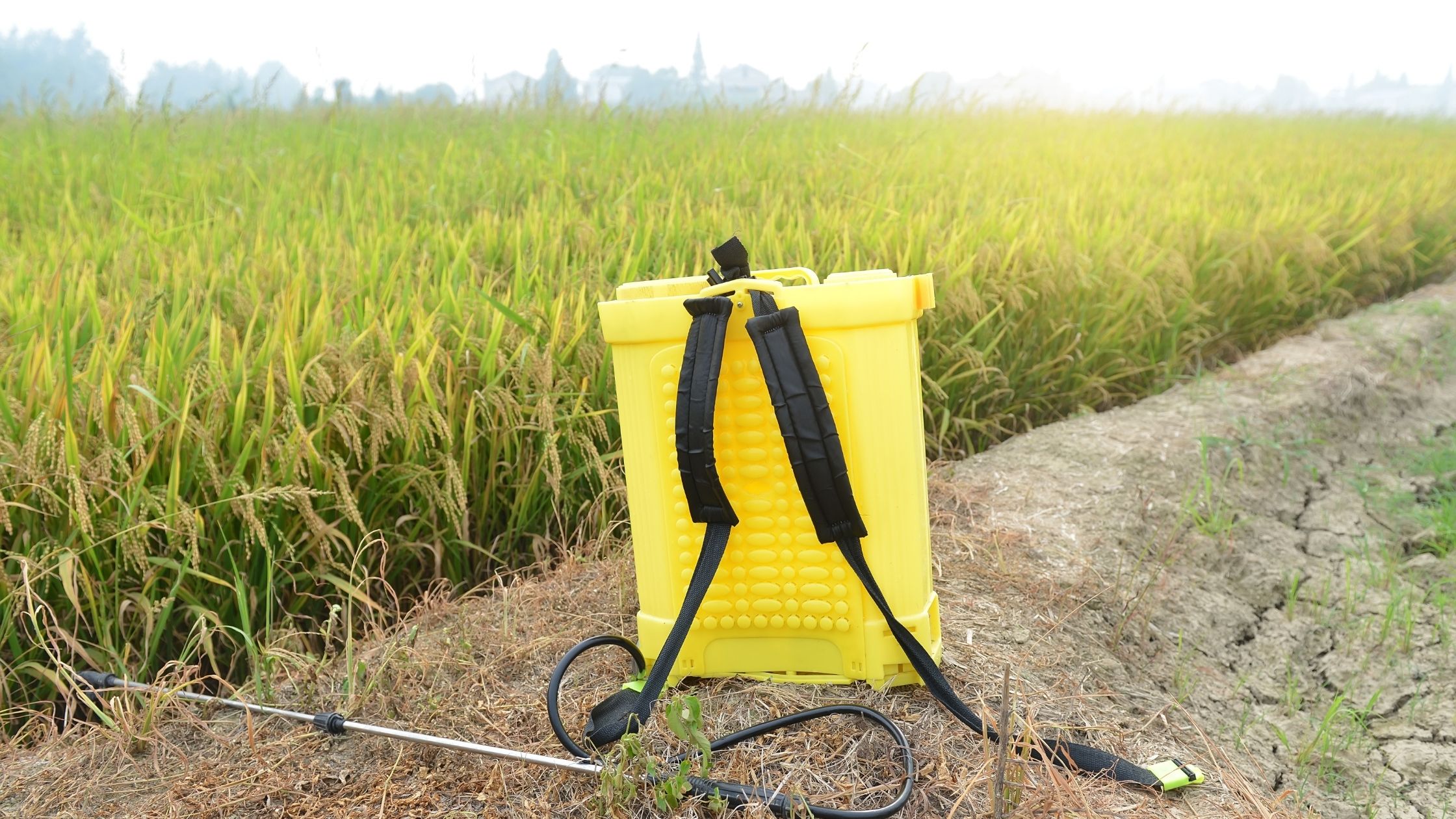
Tank Sprayers are easy to use and highly efficient in providing an on-target application of the chemical.
You add the herbicide, pesticide, or whatever chemical you want to use to the tank and then fill it with water up to the desired lines. Then you pump the air out until the spray begins to deliver the chemical under pressure. You can also tweak the settings for a fine mist or a coarse spray.
Backpack Sprayers
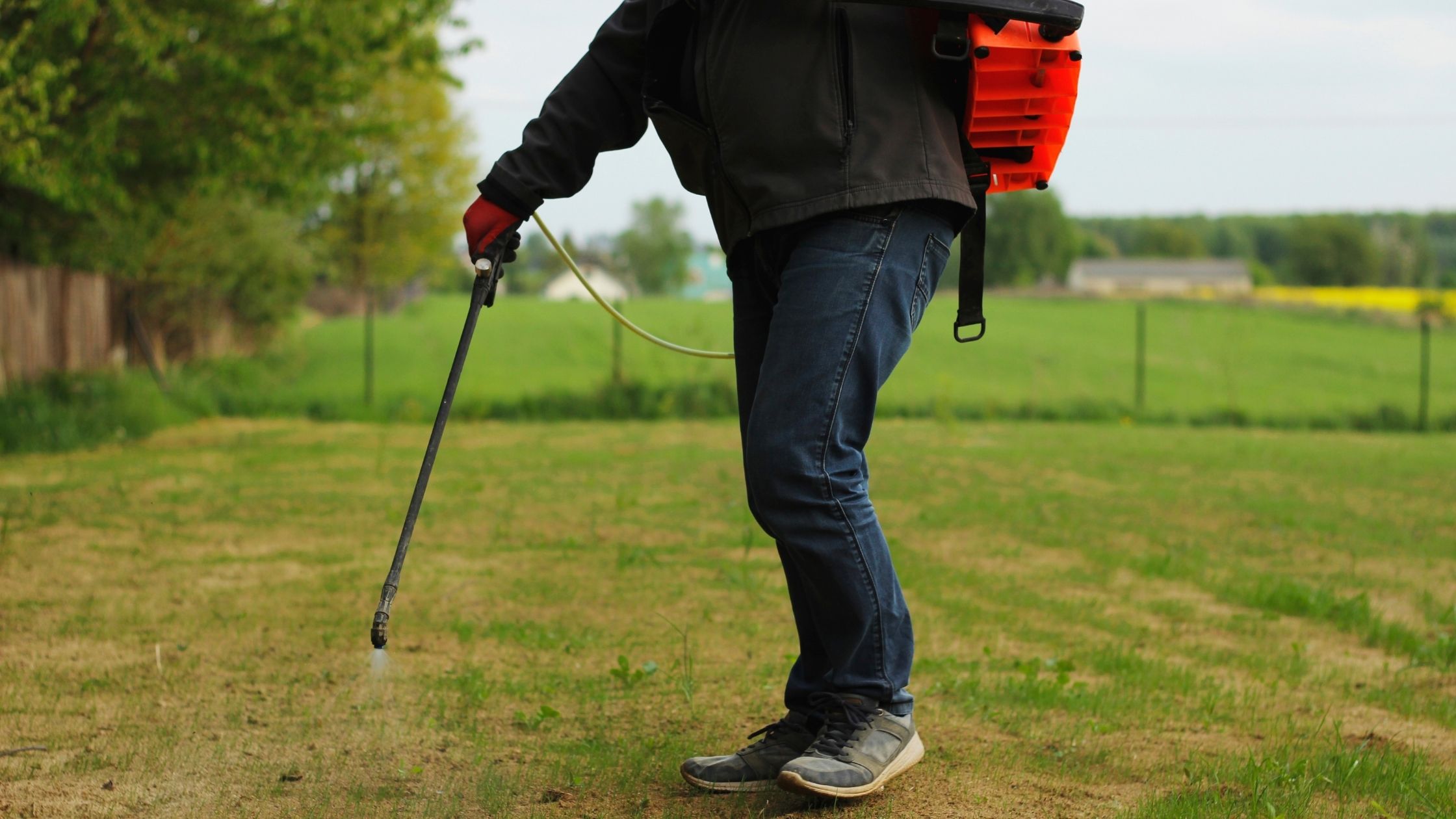
The difference between a backpack sprayer and a tank sprayer is that the backpack sprayer has an over-the-shoulder configuration, so you don’t have to carry it with one arm. The rest remains the same; it has a pump that pressurizes the chemical to spread out.
Backpack sprayers are slightly more expensive than tank sprayers, but you may want to get a backpack sprayer if cost is not an issue. It has a big capacity; some models can hold up to 4 liquid gallons of chemicals. If your garden is enormous, and you do not want to tire your arm by carrying a tank pump sprayer around, the backpack style should be the best garden sprayer for you.
While you can use your tank or backpack sprayer to kill weeds, experts recommend keeping your spray to apply herbicides and insecticides separately and getting a weed sprayer solely devoted to killing weeds.
Weed Sprayer
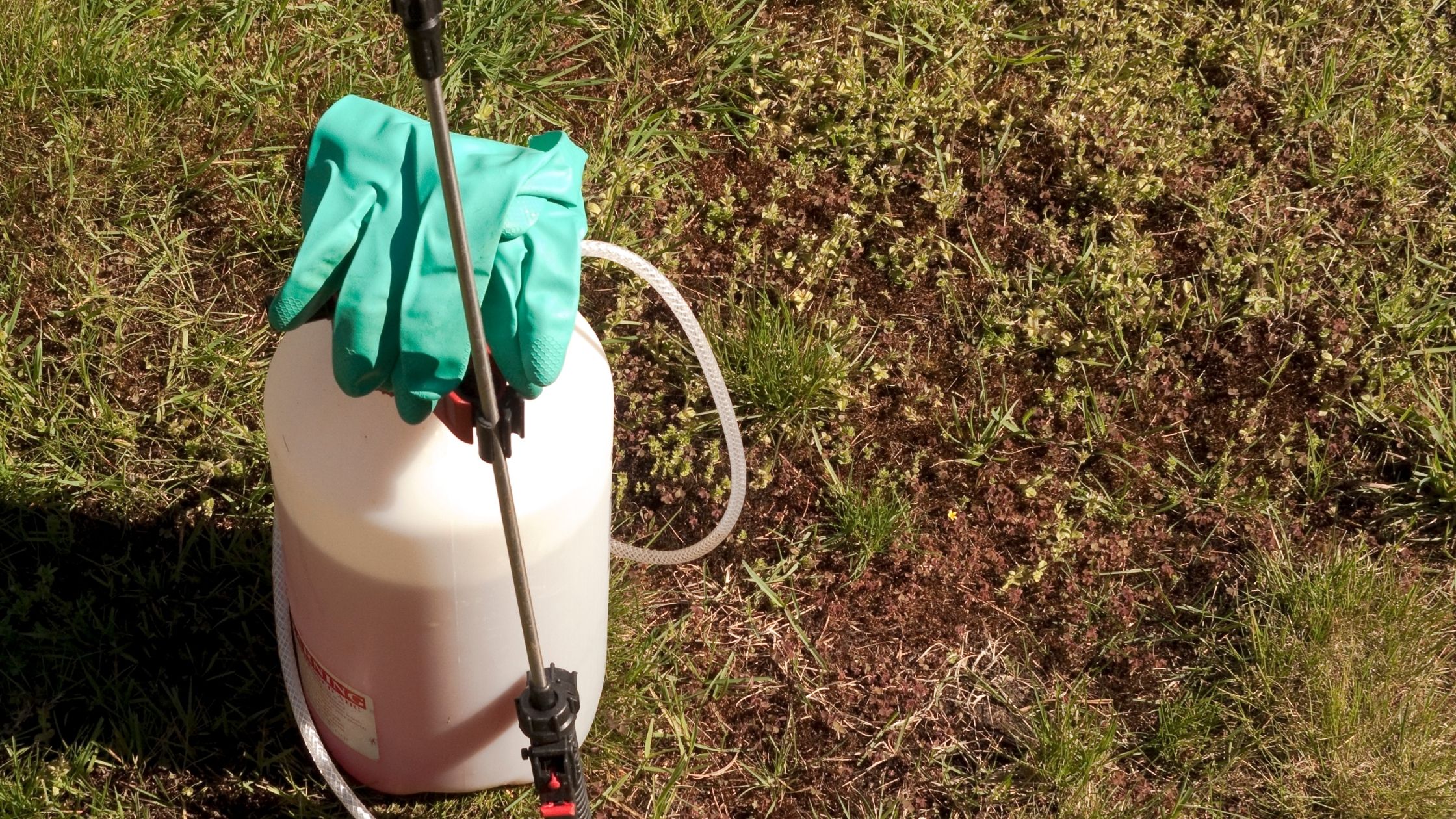
A weed sprayer is used to carry only pesticides and kill the unwanted plant growth that emerges around your garden. You should keep your weed sprayer separate and never use it to spray insecticides on your plants because pesticides never wash away thoroughly, which means that they would mix with your insecticides and harm your plants when you spray it.
While it calls for another purchase, you will realize how fruitful it is in the long run. If you are looking for an affordable weed sprayer, we recommend that you get the Smith 190285 1-Gallon Bleach and Chemical Sprayer. It is easy to use, has a comfortable grip, and has an adjustable nozzle. It is durable and priced at only $15.99; it is practically a steal.
Battery or Gasoline Powered Sprayers
Other than the manual pump sprayers, there are battery and gasoline-powered garden sprayers. As they already have an in-built system to expel the solution, they do not require the pump to pressurize the chemicals out.
While the battery and gasoline-powered garden sprayers are more convenient, they are more expensive. Also, they are usually preferred by farm-owners because of their larger capacity and heavier price tags.
Why do you Need a Garden Sprayer?
Garden sprayers are a necessity around the garden. You will need this tool for several reasons. First, a garden sprayer allows you to spray insecticides and pesticides on your plants and grass so that they remain protected from pests and insects and grow to their best of capabilities.
They help spray the right amount of pesticides and insecticides at the right place. Advantages of using a garden sprayer include:
- The job gets more effortless and efficient. Uses the exact amount of material that is required to do the job.
- You can start or stop the spray whenever you want. This also reduces wastage.
- You can adjust the settings to spray a fine mist or apply a coarse, extensive mist.
- You can use a long-reaching hose and spray to distribute material above and underneath the leaves, where traditional garden treatments could not reach.
Garden sprays allow you to use concentrated garden treatments instead of the ready-to-use, premixed ones available in the market that do a subpar job.
Now that you know what a garden sprayer is used for, you should also be mindful of the problem you want to tackle with a garden sprayer. Have you read about all the different types of garden sprinklers?
Identify the Problem Before Choosing a Garden Sprayer
Think wisely about whether you need a garden sprayer and what type of garden sprayer you would need.
Is it possible that you could treat the problem around your garden with spot-treating? Can you solve the problem by using a pesticide instead of buying a new garden sprayer?
If you need a garden sprayer, what size of sprayer would be ideal for your garden’s size? Sprayer sizes vary from 0.25 liquid gallons to 4 gallons, so you have many options, but you want to make sure that you get the best garden sprayer according to your needs.
You do not even require a garden sprayer if you only want to distribute water, and spraying pesticides and insecticides is not even your aim. Instead, what you need is a garden hose sprayer. Simply put, all you require is a garden hose that you most likely have and a nozzle that would distribute water according to your needs.
If you are frustrated with how much water jets out and is wasted and how the high pressure of the water damages your plants and sometimes over-water them, buy a nozzle and get rid of these problems.
Common Questions About Garden Sprayer Options
What garden sprayer Options are There?
The most common type of garden sprayer is the non-powered pump garden sprayers. They are further categorized into hose-end, tank, and backpack sprayers. These types are perfect for small to medium-sized gardens. The other type is the electric or gasoline-powered garden sprayers, which are ideal for large gardens and farms.
What is the best garden sprayer?
Chapin International 16100 1-Gallon Home Garden Sprayer is considered one of the best garden sprayers. It has a one-gallon capacity with an in-tank filter, ergonomic pump handle, comfortable trigger shut-off, a cone nozzle with an adjustable flow rate.
Price: $19.99
How do I choose a garden sprayer?
It depends on what you need the garden sprayer for and the size of your garden. Each garden sprayer has pros and cons, but you need to see which ones best check your requirements and budget.
Concluding Thoughts on Garden Sprayer
If you have just gotten into gardening, you might have already realized how important having a garden sprayer is. While several options are available on the market, do not get overwhelmed and realize that what may be the best pick for another buyer could not be the best pick for you. Instead, list your requirements and see which type and model to check those requirements.
Read: Different Types of Ladders

